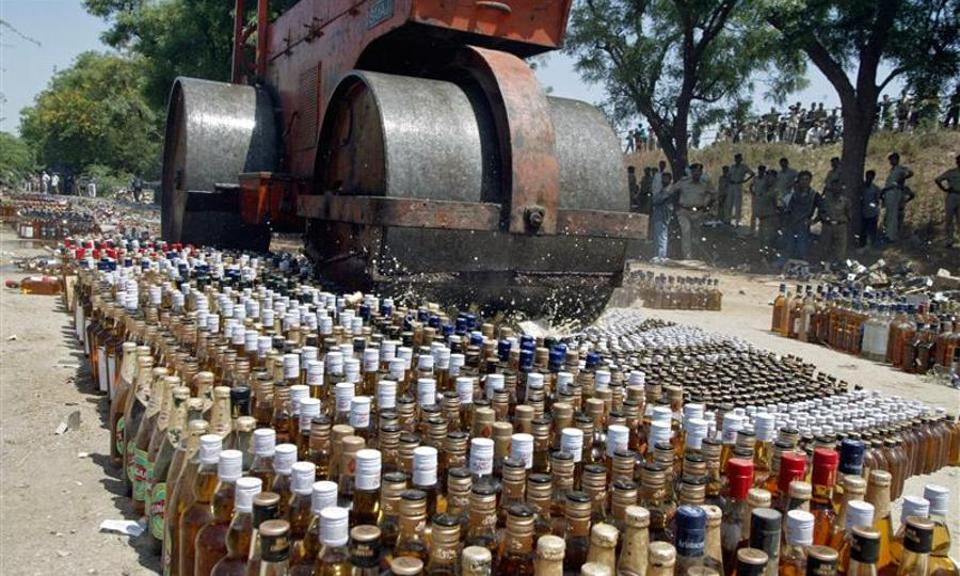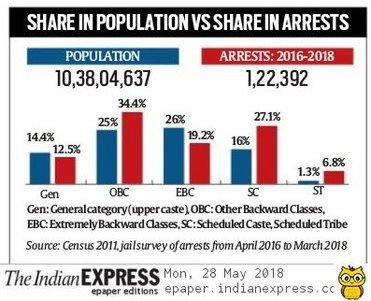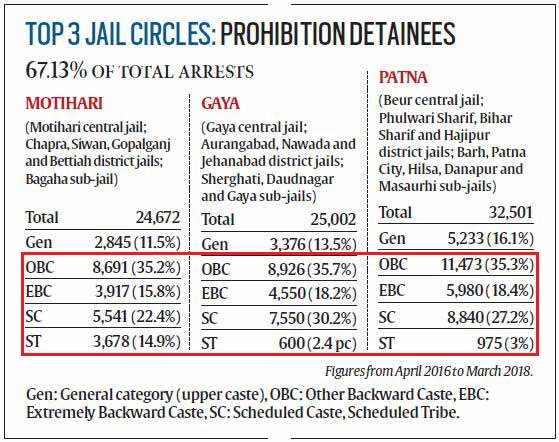Bihar often remains in the headlines due to the daily incidents and the political endgames it frequently witnesses. In a similar manner, the issue of the prohibition of liquor in the state has again become a topic for hot discussions and debate among the political circles, the civil society and the general populace as the Chief Minister of Bihar has made up his mind to do away with few clauses of liquor prohibition law which includes knowledge of possession of intoxicant and failure to inform excise and police officials imposition of collective fines; enhanced punishment for repeat offenders; expelling of notorious or habitual offenders and penalty for passing off country liquor as India made foreign liquor. Isn’t it too late in realizing the fact that more than doing good to people it had directly acted against the most underprivileged section of Bihar?
Nitish Kumar announced a complete ban on liquor from April 1 2016. Under sections 29 to 41 of the Bihar Excise and Prohibition Act, 2016, consuming, storing, selling and manufacturing alcohol are non- bailable offences. Bihari population has said on liquor, “Surya ast, Bihar Mast (As the sun goes low, Bihar gets high). According to ruling party leaders, politically it was well-thought step which would resonate well, especially in rural Bihar and promoting harmony among families. In hindsight, this decision also had the target of gaining support and votes from women section. But fresh statistics reveal that this decision has backfired aspirations of Nitish Kumar causing severe loss and pain to people which it was supposed to benefit.
DRACONIAN AND SELECTIVE CRACKDOWN: On completing two years of the liquor ban, Nitish Kumar had indirectly hinted that it’s the poor people from low castes who had benefited the most from the ban.
But practically, the high conviction rate among low castes contradicts and ridicule CM’s standpoint and claim on the success of liquor ban. The first conviction under the law, in Jehanabad, was that of a Dalit. 45-year-old Maya Devi of Munger, belonging to an Extremely Backward Caste, was the first woman to be convicted under the new prohibition law. She used to brew country liquor to earn her livelihood. A report by the Indian Express provides further details on the figures – covering the three central jails of Gaya, Motihari and Patna, 10 district jails and nine sub-jails. The numbers clearly show that most of the convictions are from the low and marginalized sections of the society.
After the release of the data, in the first week of June 2018, Nitish Kumar hinted at amendments in anti-liquor laws which indeed were draconian in nature. He conceded the fact that there were people who still consume liquor in closed rooms, government officials and bootleggers who want to profit from it.
The selective crackdown under the Nitish government was in practice. A report of the Telegraph by its roving editor Sankarshan Thakur revealed, that in Patna, liquor consumption was on the rise without any severe crackdown. In fact, the sale of liquor here ran rampant, with the help of babus and police officials. “One home in Patna orders bulk and decants it all into a mustard oil tin which is then stowed away at the back of the kitchen shelves. Another squirrels the stuff into empty cough syrup bottles that are kept scattered about the house.” Even Kumar Amit, former Excise Superintendent, Muzaffarpur admitted, “to this – “We have been able to arrest only small-time traders and country liquor brewers; the big fish are seldom caught. Even when a huge consignment is seized, it is the drivers and support staff who are arrested. The ringleaders get away because they run the business smartly, by proxy.” The Chief Secretary of Bihar, VS Dubey also conceded the fact- Stopping liquor smuggling is next to impossible for any government and prohibition cannot be termed successful with a parallel economy of bootlegging. The prohibition has produced a new generation of criminals.
Bihar’s CM Nitish Kumar must answer:
- Why is the conviction rate highest among the low and backward caste people who were according to him were the biggest beneficiaries?
- Do liquor consumers largely belong to low caste only?
Just because they live in rural backward areas, open colonies and slums, do they qualify to get convicted? And this rule doesn’t apply to others who find a safe passage for ‘daaru pe charcha’ in state capital Patna and many others.
ANTI- LIQUOR LAW JUST A POLITICAL GIMMICK: When Nitish Kumar assumed power in 2005, there were approximately 2,000 liquor shops in Bihar. According to a survey, the number of liquor shops rose to an alarming number (14,000) in just nine years. The aim of lowering domestic violence and crime in the state ended up creating a draconian liquor prohibition law whose victims are largely the downtrodden people of the state. The liquor ban is just like a padlocked gate with no walls to flank it. Even a Dalit JDU legislator from Jehanabad had to face heat from OBC, Dalits, Extreme Backward Castes of his constituency for misuse of the law. In a +secret manner and by using illegal means, liquor continues to be available in Bihar, albeit at higher prices. The data on the amount seized can tell us how much liquor still flows into Bihar. The intention behind liquor prohibition is aimless without any vision. As social scientist, DM Diwakar puts, “When a government tries to turn social reformer without alternative arrangements and rehabilitation, it is natural for youths, mostly from a poor socio-economic background, to turn to the liquor trade as an easy way of earning money. The government has failed as a social reformer. It did not look at rehabilitation, employment and governance.” Aspects of rehabilitation, employment and governance have met a tragic failure.
Imposition of a complete ban on alcohol doesn’t serve the purpose of having a peaceful and prosperous society until and unless its importance is made understood by the masses. Instead of the anti-people draconian act, strict rules along with robust propaganda and positive messages aimed at stemming liquor consumption should be have been the way forward. But this doesn’t seem to be the motive. Liquor a ban may only elicit a temporary sigh of relief for the people but one-sided law usage, largely against the downtrodden has angered both people and the opposition parties who strongly believe, enough irreparable loss to suffering masses of Bihar has already been done.
Disclaimer: The opinions expressed in this article are the personal opinions of the author. The facts and opinions appearing in the article do not reflect the views of NEWSD and NEWSD does not assume any responsibility or liability for the same.




















